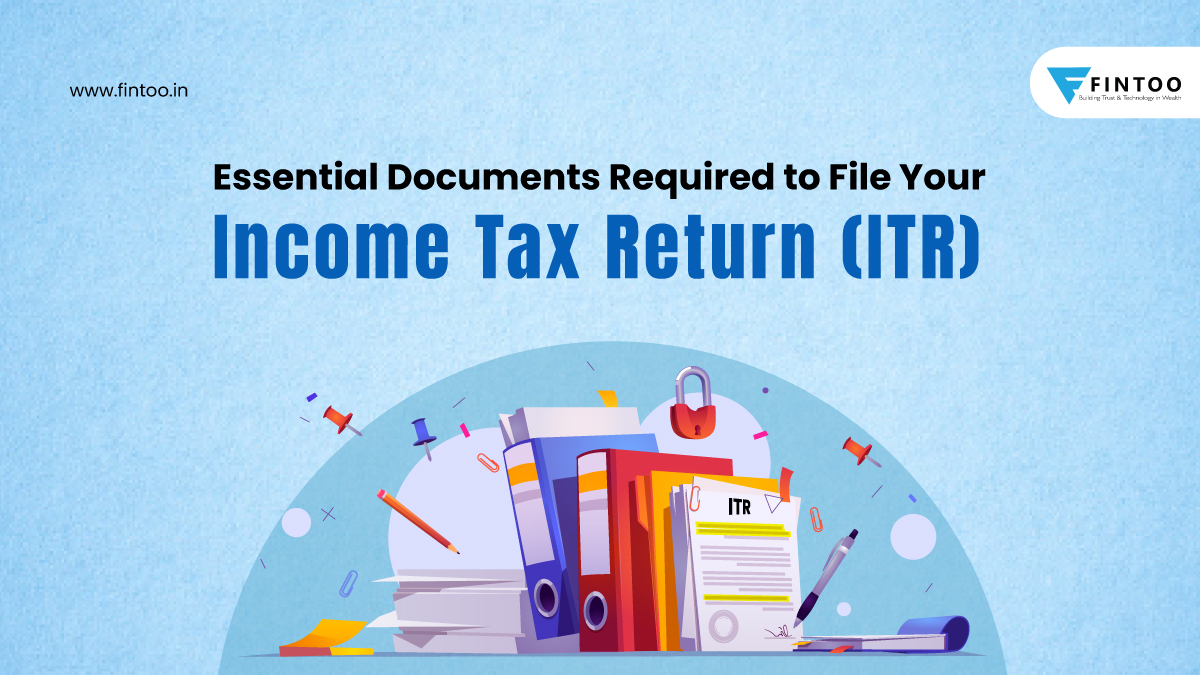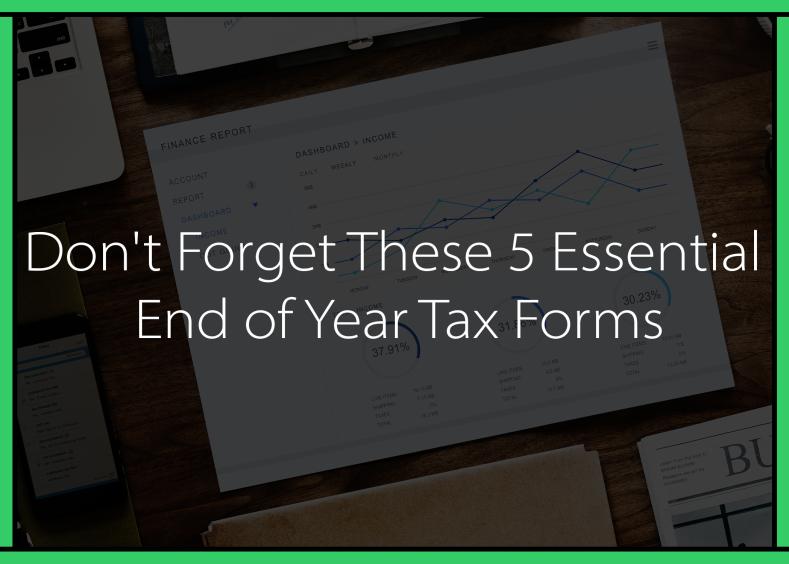Essential Tax Documents: What You Need for Filing

Preparing for tax season can be a daunting task, but having the right documents in order can make the process much smoother. Whether you're filing taxes on your own, seeking professional help, or using tax preparation software, knowing which documents are essential can help you avoid last-minute scrambles and potential errors on your tax return. Here's a comprehensive guide on the essential tax documents you need for filing, along with tips on how to organize them effectively.
Understanding Key Tax Documents

Before diving into the documents, it’s important to understand that tax laws and requirements can change from year to year. Always check with the latest IRS publications or your tax advisor for any updates.
1. Income Documents

- W-2 Forms: These are provided by your employer, summarizing your wages and the taxes withheld for the year.
- 1099 Forms: Used for reporting various types of income:
- 1099-MISC for miscellaneous income like freelance payments.
- 1099-INT for interest income.
- 1099-DIV for dividend income.
- 1099-B for proceeds from broker transactions.
- 1099-K for payments from third-party network transactions (e.g., PayPal, Venmo).
- Social Security Benefits (SSA-1099): If you receive Social Security benefits, this form details the benefits you received.
- Pension and Retirement Income (1099-R): If you’ve received distributions from pensions, annuities, retirement plans, or IRAs.
2. Deduction and Credit Documents

- Mortgage Interest Statement (Form 1098): From your mortgage lender, showing the interest paid, which might be deductible.
- Education Credits (Form 1098-T): Provided by educational institutions to report tuition payments.
- Health Insurance Proof: Forms like 1095-A, B, or C for Health Insurance Marketplace statements or employer-provided health insurance.
- Charity Receipts: Keep records of your charitable contributions for itemizing deductions.
- Medical Expenses: Receipts or statements for out-of-pocket medical expenses if you plan to itemize.
3. Additional Documents for Specific Situations

- Childcare Expenses: Provider’s tax ID number and statements of the amount paid.
- Rental Property Owners: Records of income, expenses, repairs, and improvements.
- Self-Employed Individuals: Detailed records of business income and expenses, home office deduction calculations, etc.
Organizing Your Tax Documents

Organizing your tax documents can save time and reduce stress:
- Create a Filing System: Use folders or binders labeled by category (Income, Expenses, Deductions, Credits, etc.).
- Date Every Document: Add the date received or noted on each document to track deadlines.
- Go Digital: Scan or take pictures of documents. Use cloud storage or tax software for easy access.
- Regular Updates: Keep updating your files as documents come in throughout the year.
Tips for Smooth Tax Filing

- Check for Accuracy: Errors can lead to processing delays or audits. Double-check all forms.
- Stay Informed: Tax laws change; what was deductible last year might not be this year.
- Keep Copies: After filing, retain copies of your tax return and all supporting documents for at least three years or longer if required by law.
📌 Note: Remember to file your tax return or request an extension by the due date to avoid penalties.
The key to a successful tax season lies in preparation and organization. By understanding what documents are essential, organizing them efficiently, and staying updated with tax law changes, you can ensure that your tax filing is not only accurate but also as hassle-free as possible. This approach reduces the risk of audits, speeds up the process, and helps in maximizing your tax refunds or reducing what you owe. Prepare, plan, and proceed with confidence for your next tax season.
Why do I need to keep tax documents for several years?

+
The IRS requires you to keep records to support items shown on your tax return for at least three years after the filing date. However, if you file a fraudulent return or do not report all taxable income, you might need to retain documents indefinitely.
Can I file taxes if I haven’t received all my documents?

+
Yes, you can file an extension if you’re missing certain documents. This gives you more time to collect all the necessary information before filing your return, avoiding penalties for late filing.
What should I do if I find an error in my tax documents?

+
If you spot an error, contact the issuer of the document (e.g., your employer or financial institution) to correct it. If you’ve already filed your return, you might need to file an amended return.